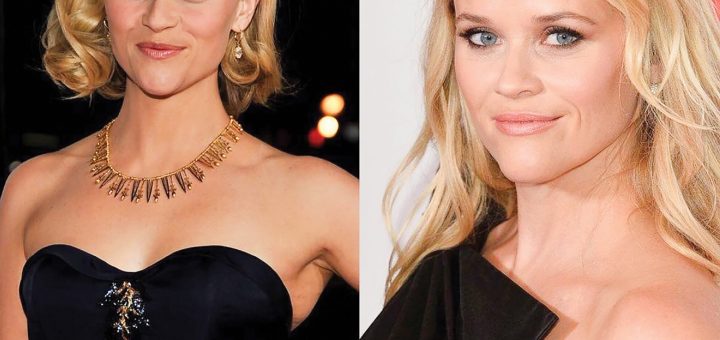The true harm behind the 10 Year Challenge

By Karina Zapata, Arts Editor
Social media fads are, objectively, awful most of the time. This time around, we walked into the new year with potentially the worst one yet: the 10 Year Challenge. This social media challenge has people comparing their 2009 self to their 2019 self which seems harmless, but is it really?
Now that the hype around this fad is mostly over, I can speak the truth: I want absolutely nothing to do with this challenge. Not only because 2009 me was embarrassingly obsessed with the Jonas Brothers and I don’t want to relive that experience, but because I refuse to be stuck in the past alongside everyone else.
There have been several theories that the 10 Year Challenge was created for facial recognition data. Kate O’Neill, a writer for Wired, says there’s a possibility that age progression recognition technology could be used against people in the healthcare and insurance industries.
“For example, if you seem to be aging faster than your cohorts, perhaps you’re not a very good insurance risk. You may pay more or be denied coverage,” says O’Neill for Wired.
While this isn’t as much of an issue for Canadians than it is for Americans, the 10 Year Challenge poses other threats, including threats to mental health. Thanks to the rise of social media, it’s easy to like what you see after a 10 year development — nowadays, there’s a lot of pressure to look your best all the time.
But for some, it’s easier to not like what you see.
Admittedly, how you feel about what you see when you complete the 10 Year Challenge has a lot to do with your age. For most university students, 2009 brings you to when you just transitioned from being a child to being a teenager. It’s an awkward, embarrassing phase that anyone would be proud to get out of.
However, for others, it’s not that simple. The 10 Year Challenge is also seen as the ‘How Hard Did Aging Hit You Challenge.’ The name itself gives it away — put a photo of your current self beside a photo of you when you were in your blooming 20s and it’s difficult not to get discouraged.
It doesn’t help that so many celebrities are taking part in this challenge and they, of course, look great in both photos.
Because no one else wants to say it, I will. We’re already living in an age of constant comparisons. Even the most confident people compare themselves to others — it’s a completely natural, human thing to do. But now we’re comparing ourselves to our past selves? How did we get here?
The 10 Year Challenge has encouraged people to think about the past more than ever. For some people, 2009 was full of heartbreak and mental health lows. For other people, 2009 was full of laughter and triumph.
Regardless of what your experiences were like in that year, what good does comparing your current self to your 2009 self do? The comparison will make you feel one of two things: loathing towards your past self or loathing towards your current self.
We are stuck in an endless loop of comparison and judgement of our past selves that we’re forgetting one key fact: despite how much you cringe at a photo of yourself 10 years ago, you were exactly where you needed to be at that exact time.
Despite how many more wrinkles you have now or how much you think you’ve “glowed up,” you would not be the person you are today without having to be the person you were for the past 10 years.
Additionally, for some reason, whether or not someone has had a magical transformation over the last 10 years, everyone seems to be fixated on the bad. Everyone is adamantly focused on pointing out imperfections, even when they are barely there.
Caitlyn Jenner participated in the 10 Year Challenge, flaunting her glowing self beside a photo of herself as Bruce with the caption, “Now THAT is a #10YearChallenge Be authentic to yourself.” Despite the fact that she seems to be a lot happier now, the comment section is full of negative comments. Of course, transphobia plays a role in this, but Jenner isn’t the only one.
Even Reese Witherspoon’s post, which has been deemed the “winner” of the 10 Year Challenge, is receiving unimpressed, hateful comments about her looking the same.
If you seem to be aging faster than your cohorts, perhaps you’re not a very good insurance risk. You may pay more or be denied coverage,
– Kate O’Neill, Wired
Truthfully, this fad gives people no room to actually grow. Those who are most proud of their transformations can’t simply be proud without putting down their past selves or being told that their transformation wasn’t dramatic enough.
However, there has been one interesting and educating take on the 10 Year Challenge.
I assume that people much like me were fed up with the emptiness behind the challenge. To make a meaningful change, environmental activists have taken this opportunity to showcase the devastating effects of not only climate change, but also the way we treat the planet, over the last 10 years.
These changes include glaciers melting into miniscule ice blocks, shrinking forests from logging, starving polar bears and dying coral reefs.
Brinkley Davies, founder of the natural environment protection charity Balu Blue Foundation Inc., says there are ways to save the planet from further deteriorating.
“Choose to not support animal agriculture, or animal products, eat local, grow your own food, support renewables, consume less, waste less, enjoy the outdoors, make sure your purchases aren’t detrimental to the environment.
“Talk to kids, educate them, stop using single-use plastics, speak up against deforestation, big oil drilling, animal cruelty, the exotic pet trade, just to name a few,” says Davies in an Instagram caption.
She also mentions that she has been vegan for over 10 years, which she says will help the planet.
In classic social media fashion, there has been some backlash about this realistic 10 Year Challenge. Some people, including the President of the United States, say that climate change isn’t real and continue to discredit those who are fighting for a change.
Despite this, the environmental aspect of the 10 Year Challenge is shining a light on environmental issues and is giving us a reason to change for the better. It has also been deemed “the only 10 Year Challenge you need to worry about.”
Personally, I couldn’t be more grateful that the 10 Year Challenge is slowly fading. I see less of it on social media every day and it relieves me that people are no longer sticking themselves in the past. However, if people continue to use meaningless challenges like the 10 Year Challenge to create meaningful changes, I wouldn’t be opposed to it.







